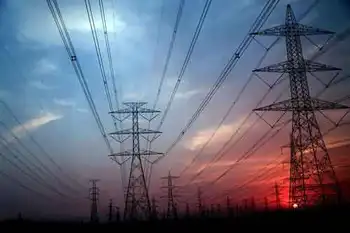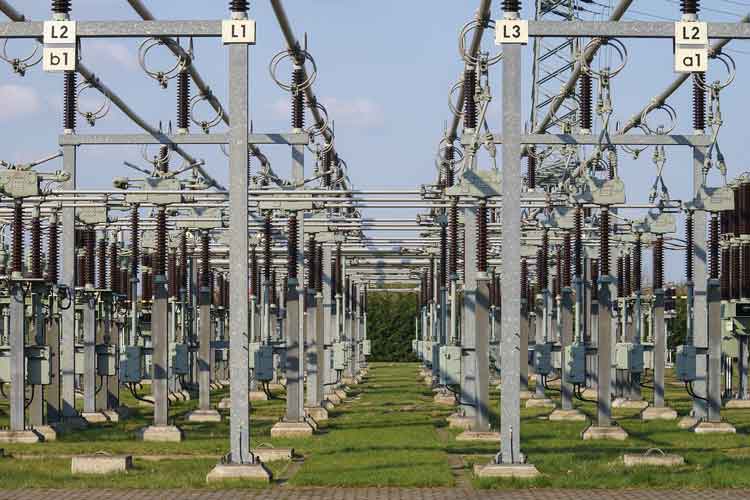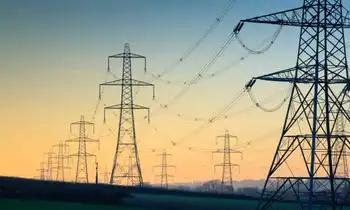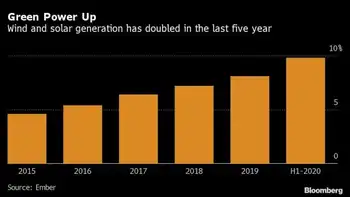Western Canada drought impacting hydropower production as reservoirs run low

Protective Relay Training - Basic
Our customized live online or in‑person group training can be delivered to your staff at your location.

- Live Online
- 12 hours Instructor-led
- Group Training Available
Western Canada Hydropower Drought strains British Columbia and Manitoba as reservoirs hit historic lows, cutting hydroelectric output and prompting power imports, natural gas peaking, and grid resilience planning amid climate change risks this winter.
Key Points
Climate-driven reservoir lows cut hydro in B.C. and Manitoba, prompting imports and backup gas to maintain reliability.
✅ Reservoirs at multi-year lows cut hydro generation capacity
✅ BC Hydro and Manitoba Hydro import electricity for reliability
✅ Natural gas turbines used; climate change elevates drought risk
Severe drought conditions in Western Canada are compelling two hydroelectricity-dependent provinces, British Columbia and Manitoba, to import power from other regions. These provinces, known for their reliance on hydroelectric power, are facing reduced electricity production due to low water levels in reservoirs this autumn and winter as energy-intensive customers encounter temporary connection limits.
While there is no immediate threat of power outages in either province, experts indicate that climate change is leading to more frequent and severe droughts. This trend places increasing pressure on hydroelectric power producers in the future, spurring interest in upgrading existing dams as part of adaptation strategies.
In British Columbia, several regions are experiencing "extreme" drought conditions as classified by the federal government. BC Hydro spokesperson Kyle Donaldson referred to these conditions as "historic," and a first call for power highlights the strain, noting that the corporation's large reservoirs in the north and southeast are at their lowest levels in many years.
To mitigate this, BC Hydro has been conserving water by utilizing less affected reservoirs and importing additional power from Alberta and various western U.S. states. Donaldson confirmed that these measures would persist in the upcoming months.
Manitoba is also facing challenges with below-normal levels in reservoirs and rivers. Since October, Manitoba Hydro has occasionally relied on its natural gas turbines to supplement hydroelectric production as electrical demand could double over the next two decades, a measure usually reserved for peak winter demand.
Bruce Owen, a spokesperson for Manitoba Hydro, reassured that there is no imminent risk of a power shortage. The corporation can import electricity from other regions, similar to how it exports clean energy in high-water years.
However, the cost implications are significant. Manitoba Hydro anticipates a financial loss for the current fiscal year, with more red ink tied to emerging generation needs, the second in a decade, with the previous one in 2021. That year, drought conditions led to a significant reduction in the company's power production capabilities, resulting in a $248-million loss.
The 2021 drought also affected hydropower production in the United States. The U.S. Department of Energy reported a 16% reduction in overall generation, with notable decreases at major facilities like Nevada's Hoover Dam, where production dropped by 25%.
Drought has long been a major concern for hydroelectricity producers, and they plan their operations with this risk in mind. Manitoba's record drought in 1940-41, for example, is a benchmark for Manitoba Hydro's operational planning to ensure sufficient electricity supply even in extreme low-water conditions.
Climate change, however, is increasing the frequency of such rare events, highlighting the need for more robust backup systems such as new turbine investments to enhance reliability. Blake Shaffer, an associate professor of economics at the University of Calgary specializing in electricity markets, emphasized the importance of hydroelectric systems incorporating the worsening drought forecasts due to climate change into their energy production planning.











